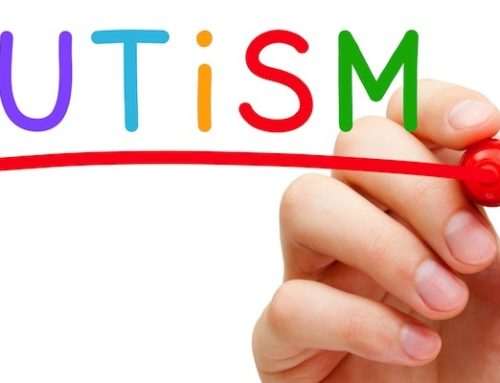For most of us the internet is just another part of our daily life. Sure it’s not all sunshine and rainbows but generally speaking it’s a quick and easy way to find information and reach out to others for their opinions and recommendations. Amongst the “child friendly accommodation” and “quick and easy meals” discussions, I often see posts in forums and parent groups asking for recommendations for a speech therapist. The responses that follow usually suggest a number of speech pathologists with claims that they “great” or “amazing”, with each person testifying why theirs is the best! Whilst I love hearing that people are happy with the speech pathology service they have received it got me thinking… what makes a speech pathologist great?
-
They are compassionate
A good speech pathologist really cares for their clients. They see a child who is special and unique, and not just another name on a long list of names. If that child starts to display some difficult behaviours during a session, they do not throw their hands up and say, “Sorry, not my problem”. Instead they spend time coming up with strategies and activities that may be more engaging and motivating for the child, or they seek input from other health professionals who may be able to offer support. A good speech pathologist sees the child’s family as team members who are here to help and play a vital role in the process, and not just as someone who brings the child to each session and pays the bill. A good speech pathologist will listen to you to find out what you think works and what doesn’t. They will not tell you how it has to be… “You need to come every week”, “You need to come 3 times a week”, “You need to increase to 1 hour sessions”. Rather, they will try to be as flexible as they can be (within reason) to find an appointment time and frequency that works for you. They will try to incorporate “homework” into your everyday activities as much as possible, rather than adding more to your already very busy workload. They will be punctual and organised to make the most out of your time together.
-
They are adaptable
Everyone has good days and bad days so the reality is that you will get some speech therapy sessions that went well, some that went really well and others… not so much. This is all part and parcel of the process. No two clients are ever the same but a good speech pathologist is able to adapt quickly. If an activity isn’t working they’ll tweak it and twist it to better suit your child. If it still isn’t working they will move onto something new. Of course it does take time initially for the therapist to work out how hard and how far your child can be “pushed”, and when they need to stop and take a step back. However, they should not be doing the same thing week after week if you aren’t getting anywhere. Similarly, they can’t create a “program” and go on “autopilot” expecting each child to fall into line. Some children need a very gentle nurturing style to help them bring out their best, whereas others need a bit more, “tough love” if you will. Some children are confident and don’t mind trying new and more difficult things, whereas others are very hesitant to try something if they don’t think they will succeed. If the speech pathologist cannot engage the child within the session, or if they are working on goals that are either too easy or too hard, the child won’t make any progress. A good speech pathologist will be mindful of your child’s personality and needs and will be able to adapt and make changes quickly to ensure that your child is working at the right level in order to make progress.
-
They collaborate
A speech pathologist may be an “expert” when it comes to communication development and disorders, but parents are the experts when it comes to their children. A good speech pathologist knows this and therefore views your relationship as a partnership. They will share their knowledge and experience with you, and ask you about your thoughts and concerns in order to ensure that you are both on the same page. They will also be happy to work with teachers or any other health professionals currently involved to best support your child. They will keep you informed about what they are doing and what the overall purpose or “big picture” is for each activity. They will give you “homework” to help your child transfer what they have achieved in the therapy session into a more natural/ realistic environment, because they know and explain that progress will only be made if the skills are being practised at home and school.
-
They say “I don’t know”
Speech Pathology is a very vast field so the people who proclaim that they can “do it all” make me very nervous. No one knows everything. A good speech pathologist knows what they don’t know. What they do from there will vary depending on the situation. In some instances they may just want to chat to a colleague for another opinion, or they may want to explore the latest research findings about a particular therapeutical approach before continuing on. Sometimes attending a conference or workshop for additional training fills in the gaps. In other circumstances however, the speech pathologist might explain that they are unable to provide services to a child because they feel that they do not have adequate knowledge, experience or resources to support them. Whilst it may not seem like it at the time, a speech pathologist who turns you away so that you can seek more appropriate services elsewhere, is doing your child a better service than the one who takes you on but is way out of their depth.
-
They keep learning
Some people say “experience is everything” but in the world of speech pathology I don’t think that’s the case. Like many other professions, speech pathology is a field that is constantly changing. New research is being done all the time which may support or challenge current practices and treatment approaches, as well as introduce new ideas and concepts. Sure experience can be a very valuable thing, however there’s no point seeing someone with over 20 years of experience if they are still doing everything today just as they did 20 years ago! It is so important for speech pathologists to be actively involved in ongoing learning or professional development. As a result, Speech Pathology Australia have a program in which they monitor members’ professional development each year. Speech pathologists who have met the yearly requirements by attending approved conferences, workshops, seminars or completed online courses etc, are then permitted to use the initials CPSP (Certified Practising Speech Pathologist) in their title for that year, which is a great way for you to see who is committed to continued learning.
There are obviously many other factors that contribute to making a “great” speech pathologist. They have to be patient and kind, as well as firm. They must have excellent communication skills. They must be able to persevere when things are not going as expected. They must have confidence to advocate for their clients when barriers arise. Above all, they must love and be passionate about their job and working with children!






